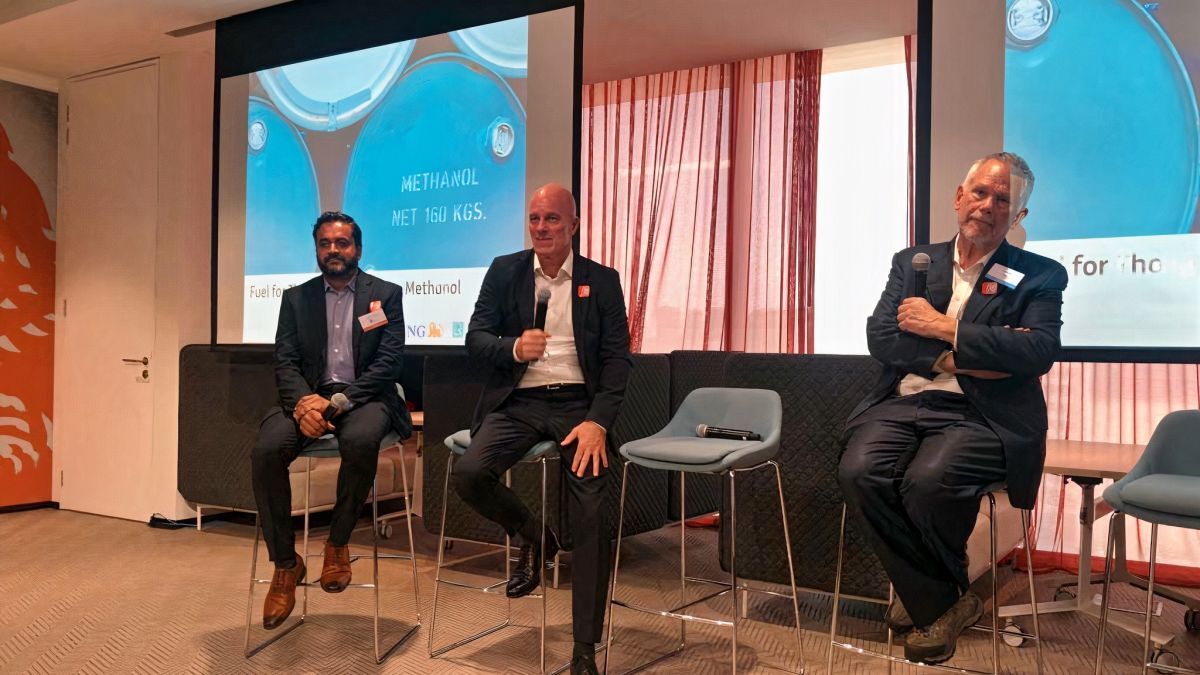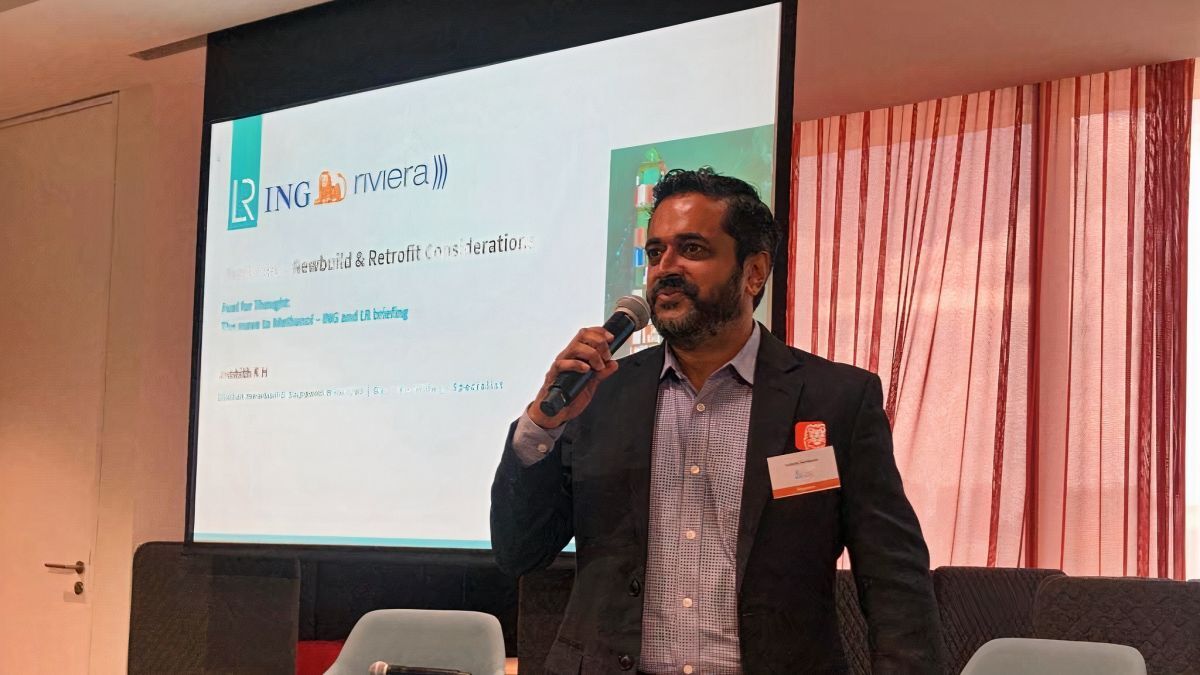Methanol’s moment?

The panel stressed the need for pragmatism and transitionary solutions on the path to decarbonisation
27 Jul 2023by Edwin Lampert
The global shipping industry finds itself at a critical juncture on fuel choice and decarbonisation
This has brought methanol’s potential as a lower-carbon fuel for powering the world’s maritime transport fleet into sharp focus – as has analyst predictions that there will be 1,200 vessels capable of running on methanol on the water by 2030.
To bring clarity to these evolving developments, ING Bank and Lloyd’s Register, in partnership with Riviera Maritime Media, organised an exclusive event themed Fuel for Thought: The move to Methanol at ING’s Singapore offices.
Following detailed presentations from Lloyd’s Register global manager – newbuilding support and gas technology specialist, Sobhith Hariharan, Methanol Institute chief operating officer Chris Chatterton and Wärtsilä North America general manager, market innovation John Hatley, there was a question-and-answer session moderated by Riviera Maritime Media’s executive editor, Edwin Lampert. More than 80 VIPs attended, drawn from leading charterers, owners and the wider supply chain. Discussions were conducted under The Chatham House Rule.
The dialogue revolved around methanol’s current availability, scalability and technological readiness for marine applications. The consensus was that methanol is readily available and can significantly reduce CO2-equivalent emissions compared with conventional marine fuels. Methanol’s safety advantages over some alternative fuels such as hydrogen were highlighted, including its ease of handling and safer onboard storage.
The outlook for technology received positive assessments, with regulatory frameworks progressing, and engine technology and fuel systems maturing. Methanol is already viable in specialised new engine types, but the panel agreed the transition must address broader fuel infrastructure factors.
Sobhith Hariharan (Lloyd’s Register): Regulatory frameworks are progressing and engine technology and fuel systems maturing
Immediate challenges include securing sufficient renewable methanol supply and ensuring compliance with stringent emissions regulations. The panel stressed the need for pragmatism and transitionary solutions on the path to decarbonisation. While a shift towards low-carbon fuels makes sense, fleet transition will take time.
The audience were also cautioned against getting carried away on technical potential alone. Operational and financial details, including the hidden costs of new fuels, need to be scrutinised. Until commercial considerations are resolved, attractive fuel-flexible ships may not get the right fuel incentives.
The mood music at the end of the discussion was a mix of tempered optimism and pragmatism regarding uptake of methanol as a marine fuel. More radical decarbonisation solutions can come later.
For more on Lloyd’s Register’s ‘Fuel for thought’ alternative fuels series, click here.

